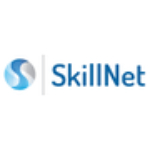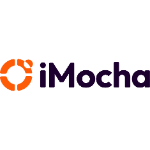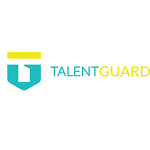List of Best Skills Management Software
Showing 10 of 48 productsSkillNet is a dynamic and innovative software platform that revolutionizes how organizations manage and develop their workforce. Designed for businesses of all sizes, SkillNet offers user-friendly tools and resources to effectively identify, nurture,...Read SkillNet Reviews
Cinode is a software that has revolutionized the way companies manage their team members and projects. With its innovative design and user-friendly interface, Cinode streamlines workflows, enhances communication, and boosts productivity. Say goodbye...Read Cinode Reviews
AG5 Skills Intelligence is a solution to managing and optimizing your workforces talent and potential. Powered by advanced technology, it offers a user-friendly platform for tracking and analyzing skills data to drive strategic decision-making. Say g...Read AG5 Skills Intelligence Reviews
iMocha is a platform for streamlining your hiring process. With iMocha, you can easily create and administer pre-employment skill tests, assess candidates abilities accurately, and make data-driven hiring decisions. Say goodbye to traditional recruit...Read iMocha Reviews
Skills Base is a robust software designed to help companies manage their employee development and skill tracking processes. With its easy-to-use interface and powerful features, Skills Base streamlines the often complex task of skill management and p...Read Skills Base Reviews
EmployPlan is a solution for managing your workforce. With its intuitive user interface features, EmployPlan streamlines the entire HR process, from hiring to onboarding and performance management. Say goodbye to tedious paperwork and hello to simpli...Read EmployPlan Reviews
Visual Workforce is a solution for streamlining your workforce management. With its innovative and user-friendly visual interface, this software simplifies the complex task of workforce optimization and allows you to efficiently manage your resources...Read Visual Workforce Reviews
DevSkiller TalentBoost is a solution for finding and hiring top tech talent. With a user-friendly platform and a robust database of curated coding tests, TalentBoost streamlines the recruitment process and helps you identify the most qualified candid...Read DevSkiller TalentBoost Reviews
MuchSkills is a software that simplifies every aspect of skills management. It provides a customizable platform for individuals and teams to identify, develop, and measure their skills. With its user-friendly interface features, MuchSkills is redefin...Read MuchSkills Reviews
TalentGuard is a software solution designed to revolutionize talent management. With its intuitive interface features, TalentGuard helps organizations optimize employee performance, develop future leaders, and drive success through holistic talent ma...Read TalentGuard Reviews
- What Is Skills Management Software?
- Top Reasons Why Businesses Need Skills Management Software?
- What Are the Top Key Features of Skills Management Software?
- What Are the Top Benefits of Skills Management Software?
- What Are the Steps to Choose the Right Skills Management Software?
- What Are the Types of Skills Management Software for Different Industries?
- What Are the Technology Trends for Best Skills Management Software?
- What Are the Deployment Options for Skills Management Software?
What Is Skills Management Software?
Skills Management Software is a sort of software that assists businesses in better managing the abilities of their personnel. It keeps track of employee training, performance levels, certifications, and other job-related skills. This programme is intended to help employees enhance their skills, evaluate their performance, and match their qualifications to current and future employment requirements.
Furthermore, skill management tools may automate time-consuming HR tasks, saving firms time and money. HR managers can utilise the programme to complete duties including tracking employee growth, training resources, allocating job responsibilities, and reviewing employee performance in a timely manner. Furthermore, the programme can provide an overall picture of an employee's skills and how they compare to other members of the team.
Overall, the best skills Management Software can assist firms in better streamlining and managing the skills of their staff. It enables businesses to make educated judgements regarding the suitability of employees for specific work duties and management strategies by making it simple to monitor, examine, and evaluate an employee's skills and qualifications.
Top Reasons Why Businesses Need Skills Management Software?
1. Improve team performance: Skills management software assists in identifying the specific abilities required for work and assigning individuals to tasks that best fit their skill set, resulting in improved overall team performance.
2. Track progress: The best skills management software enables firms to track their employees' knowledge and abilities, from novice to expert, and to track their growth as they gain competency in specific areas.
3. Retain valuable talent: Keeping track of its employees' skills will allow firms to understand which employees have the most valuable skills and knowledge and target those individuals with retention methods.
4. Simplify hiring: Businesses may simply search for the most qualified candidates for a position using a skill management system, quickly drilling down to identify the best candidate for a job.
5. Improved strategies: Businesses may establish stronger long-term strategies for the skills needed by tracking the skills and abilities of their personnel, assisting in judgments on whether training is required and how to swiftly replace future skill gaps.
6. Boost morale: Businesses will be able to recognize and reward staff for their accomplishments by defining performance targets and tracking progress, improving morale.
7. Automate processes: The task of keeping track of what skills are required for the workforce is made easier for HR professionals by skills management software, which automates many activities connected to this.
8. Eliminate paperwork: Manual skill monitoring can be time-consuming and error-prone, whereas skill management software makes it easier to keep track of which abilities are necessary.
9. Streamline succession plans: Businesses can build succession plans to guarantee individuals are ready to fill any roles that become available if they have a clear understanding of which skills are at the highest levels in the organization.
10. Develop training plans: Businesses can build their training plans with measurable results by keeping precise records of what skills are needed and what skills need to be developed.
11. Detect abnormal employee behavior: Businesses can use skills management software to receive alert alerts when progress or scores fall below a certain threshold, assisting them in detecting anomalous employee behavior.
12. Identify high performers: Businesses can easily discover any standout employees by measuring talents, allowing them to be more rewarded and recognized.
13. Quantify results: Automation of skills management processes enables firms to be more precise in quantifying results, whether it be staff productivity management or success rates.
14. Unify multiple systems: Top skills management software integrates readily with other systems, such as performance management and recruiting software, to provide a unified platform.
15. Enable feedback systems: Businesses will be able to design feedback systems that provide constructive feedback to help employees further enhance their skill sets by automatically tracking the skills of their employees.
What Are the Top Key Features of Skills Management Software?
The top key features of the best skills management software are:
1. Automated tracking of employee skills - Automated employee skill tracking enables supervisors and managers to rapidly understand who has what talents, allowing them to optimize workflow procedures.
2. Competencies tracking - Competency tracking enables firms to effectively assess their employees' capacity to perform specific roles, responsibilities, and activities.
3. Goal and performance alignment - The best skills management software enables managers to connect goals and performance feedback with employees' skills, ensuring that they are appropriately prepared to handle whatever duties are assigned to them.
4. Experience level tracking - This allows managers to track employees' expertise levels in certain skills, making it easier to assign assignments and prepare for new initiatives.
5. Integration with current HR systems - Top Skills management software is intended to work in tandem with other key HR operations such as recruitment, onboarding, and training.
6. Learning and development tools - Giving staff learning and development tools provides them with the resources and support they need to enhance and develop their abilities.
7. Customizable dashboards - Supervisors and managers may rapidly find information by using customized dashboards for each department.
8. Reporting and analytics - Managers can use reporting and analytics to discover trends, make forecasts, and analyze the skills obtained by the organization or current trends in personnel thickets.
What Are the Top Benefits of Skills Management Software?
1. Improved Organization: Skills management software helps firms organize employee data, making it easier to track skill gaps, identify areas for improvement, and track career progression.
2. Enhanced Performance Visibility: Businesses can monitor their employees' performance and productivity with the use of the best skills management software, which gives them a better idea of where they can improve and where they can advance.
3. Easier Recruitment Processes: Businesses may simply obtain information about possible employees and match them with the skills and competencies required for the position with the help of skills management software.
4. Improved Planning and Forecasting: Businesses can use skill management tools to more effectively plan and estimate future skill requirements, ensuring that their operations are handled by the most trained and experienced individuals.
5. Improved Employee Retention: Skill management system assists managers in identifying their employees' skills and competencies, enhancing employee retention and lowering recruitment costs.
6. Enhanced Learning and Development: Top skills management software, by allowing employees to monitor and track their skill set and progress, may assist ensure suitable training and development programs are in place to help staff meet goals and maximize potential.
7. Streamlined Collaboration: Businesses may effortlessly interact with diverse departments with talent management software, improving communication and increasing efficiency.
What Are the Steps to Choose the Right Skills Management Software?
1. Define your needs: Determine which tasks you want the best skills management software to assist you with. Consider which elements are most important to you, such as employee competency tracking, onboarding programs, or creating training courses.
2. Research available products: Look for top skills management software that includes the functionality you require online. Make a list of the attributes of each product, as well as the price.
3. Identify compatibility issues: It is critical to ensure that your organization's talent management software is interoperable with other systems or databases. Check that the product you choose can share data with other systems.
4. Review customer feedback: onboardingreviews to learn about other people's experiences with the product. If the feedback is positive, it indicates that the software is dependable and valuable.
5. Talk to existing users: Get feedback from people who are already using the skill management tool. If they had a favorable experience with the product, it may be the best option for you.
6. Contact the vendor: Contact the merchant directly if you have any questions or concerns. Inquire about any extra features or customization options they may have.
7. Make a decision: Take into account all of the elements and select the skill management system that best matches your requirements.
What Are the Types of Skills Management Software for Different Industries?
There are three primary types of the best skills management software for different industries:
1. Human Resources Software: This software is intended to measure, manage, and report on an organization's employees' skills and competencies. It typically includes functions like as job monitoring, applicant tracking, performance management, employee onboarding, skills management, and others. It can also aid in the streamlining of HR processes and the reduction of administrative time.
2. Learning Management Systems (LMS): LMSs are software systems that allow businesses to track, manage, and report on their employees' learning activities and progress. It is useful for keeping track of compliance training, onboarding, skill training, and certifications. It typically includes features like automated assessments, course design, certifications, mobile learning, and more.
3. Project Management Software: This program is intended to assist organizations with project planning, tracking, and management. It also includes task management, resource scheduling, project tracking, project budgeting, and other functions. It can be used to keep stakeholders informed, track skill growth, and build stronger teams.
What Are the Technology Trends for Best Skills Management Software?
The technology trends for best skills management software are the following:
1. Data Visualization: Employers may more easily monitor, measure, and analyze employee abilities with data visualization tools. This enables them to discover skill gaps, recognize talented individuals, and comprehend how a recruit may fit into the organization.
2. Automation: Automating common operations in the skill management process decreases the administrative cost of managing skills and makes tracking skills development and making choices easier and faster.
3. Artificial Intelligence: AI-powered top skills management software can analyze and map employee skills automatically, providing companies with a current, detailed picture of employee competencies. AI can also be used to automate the process of developing job profiles from skill records.
4. Cloud-based solutions: Employers can access their skills management systems from any mobile, desktop, or tablet device using cloud-based solutions. This ensures that data is always up to date, and companies can save time and money by not having to handle hardware and software.
5. Machine Learning: Machine learning can help automate the processes of setting skill targets, identifying skill gaps, and offering staff personalized learning solutions. Employers can also use machine learning to better match job openings with the best-qualified candidates.
What Are the Deployment Options for Skills Management Software?
Deployment options for the best skills management software vary greatly depending on the type of software and feature set. Generally speaking, the most common deployment options are as follows:
1. On-Premise: This is the process of installing software on the company's internal servers. This necessitates the hiring of IT personnel, the purchase of hardware and software, and ongoing monitoring and maintenance.
2. Cloud-Based: When software is deployed in the cloud, the software supplier is in charge of hosting, maintenance, and updates. This solution is often faster and more convenient because it does not necessitate the use of internal resources.
3. Multi-Tenant/SaaS: This occurs when numerous businesses utilize the same version of the software hosted by the supplier. It is frequently less expensive than on-premise, but the company's data and applications will be housed elsewhere.
4. Hybrid: This occurs when a portion of the program is hosted in the cloud and another portion is hosted on-premise. This method frequently combines the cost-effectiveness of cloud-based solutions with the flexibility and control of on-premise applications.










